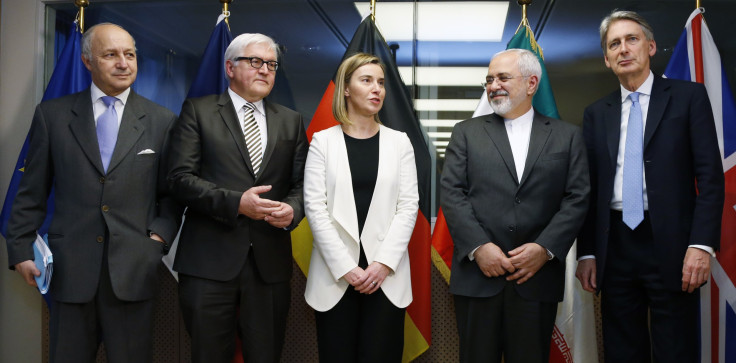Iran Nuclear Program Talks: Deal Still Not There, Pressing Issues Unresolved, Western Diplomat Says

Efforts to curb some of Iran’s most sensitive nuclear activities by the end of the month intensified Tuesday. Some Western officials have said that many pressing issues remained unresolved, but Iranians have shown optimism about clinching an agreement.
"We'll see what happens the rest of the week but for now we're not there," a senior Western diplomat said, according to Reuters. He added that American officials, led by U.S. Secretary of State John Kerry, shared similar sentiments as they met with Iranian Foreign Minister Mohammad Javad Zarif and his delegation in Lausanne, Switzerland, for negotiations.
"We are trying to get there but quite frankly we still do not know if we will be able to," a senior U.S. official told reporters Monday, according to Reuters. "Iran still has to make some very tough and necessary choices to address the significant concerns that remain about its nuclear program." The official said the parties involved would work through the end of the month, if needed, to secure the deal.
A top Iranian nuclear official had a different assessment on the talks than the other negotiators.
"The main issues have been closed," Ali Akhbar Salehi, Iran's nuclear chief, told Iranian state television Tuesday, according to the New York Times. "I hope that in the remaining time we can close this."
Zarif had a more cautious outlook. "On some issues we are closer to a solution and based on this we can say solutions are within reach. At the same time, we are apart on some issues," he told the Iranian news agency IRNA, according to Reuters.
The Iranian new year holiday of Norouz approaches this weekend and officials close to the talk have said completing an agreement by this week would be hard, according to Reuters. If postponed, the talks would reconvene at the end of March. The parties have set a June 30 deadline to finalize all technical details of an accord.
The six world powers -- the United States, Britain, France, Germany, Russia and China -- were offering Iran gradual easing of some sanctions in exchange for the country curbing programs for at least 10 years that were criticized for possibly yielding enriched uranium usable in nuclear weapons. Iran has denied it was building arms, and insisted it has uranium only for energy, medical and scientific purposes.
Republicans in the U.S. Senate sent a letter to Tehran last week, suggesting that any deal brokered by President Barack Obama's administration in the ongoing talks could be reversed if it’s made without congressional approval. The 47 lawmakers who signed the letter were criticized for trying to undermine the president’s authority and scuttle the Iran-U.S. nuclear talks.
© Copyright IBTimes 2025. All rights reserved.






















